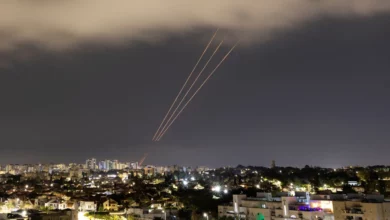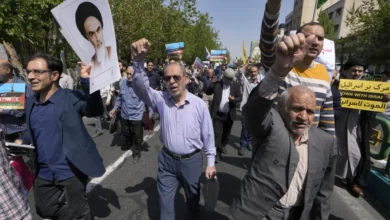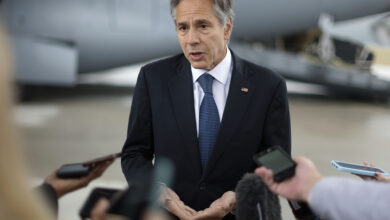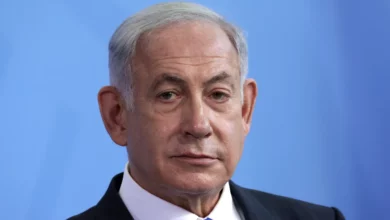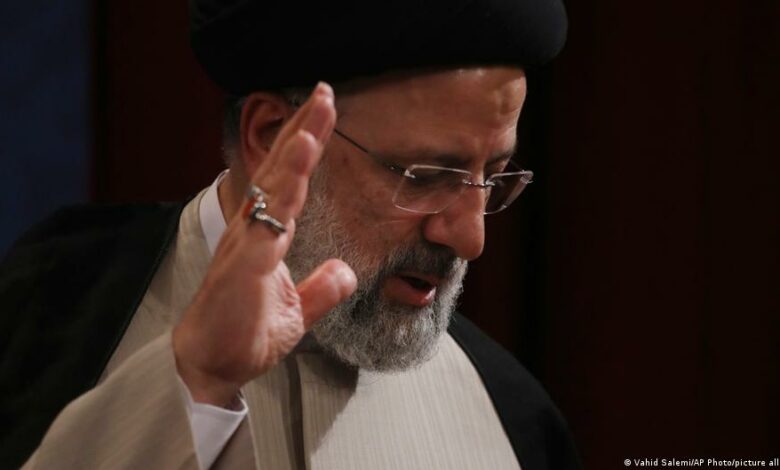
On Thursday, 60-year-old Ebrahim Raisi will be sworn in before parliament as the Islamic Republic’s sixth president after Supreme Leader Ayatollah Ali Khamenei inaugurated him on Tuesday in a ceremony broadcast live on state television.
However, the handover of power to a new administration is being greeted by many Iranians with a sense of hopelessness and resignation.
“Raisi and his government will face major national as well as international challenges,” said Sina Azodi, an expert on Iran at the Washington-based think tank Atlantic Council.
Iran currently has been suffering from its worst drought in more than 50 years. Water is scarce, power outages are frequent and the coronavirus continues to spread rapidly. Inflation, meanwhile, has skyrocketed due to the pressure of US sanctions. Many Iranians feel exhausted and demoralized.
Protests against the government continue to flare up in various parts of Iran, most recently in Khuzestan province in the southwest.
There is not much hope that things will change for the better under the new president.
Voter turnout in the July 18 presidential election was just 48.8 percent, according to official figures, the lowest since the 1979 revolution, underscoring Iranians’ disenchantment with the political system.
 Supreme Leader Ayatollah Ali Khamenei (l) inaugurated Ebrahim Raisi (r) on Tuesday in a ceremony broadcast live on state television
Supreme Leader Ayatollah Ali Khamenei (l) inaugurated Ebrahim Raisi (r) on Tuesday in a ceremony broadcast live on state television
How will it affect the nuclear agreement?
“Ebrahim Raisi had promised a lot during his election campaign, including improving the economic situation. For that to happen, US sanctions must first be lifted,” said Iran expert Azodi.
But Raisi, who was Iran’s judiciary chief until his election victory, brings no foreign policy experience to the table, the analyst pointed out.
“Under President Hassan Rouhani, Mohammad Javad Zarif was foreign minister and in charge of the nuclear talks. Zarif had lived in the US for more than 20 years and was a long-time diplomat at the UN in New York. He knows the US and US politics very well. An experienced foreign policy expert like Zarif is missing on Raisi’s side. I fear this will be a serious problem.”
During his presidency, Donald Trump unilaterally withdrew the United States from the Iran nuclear deal in 2018 and imposed the toughest sanctions ever on the country.
A year later, Iran also started to gradually withdraw from its treaty obligations.
Tehran has since violated nearly all of the technical provisions of the deal, which is meant to prevent Iran from developing nuclear weapons.
The Iranian leadership — including Supreme Leader Ayatollah Khamenei, who has the final say in the Islamic Republic — says it wants to return to the 2015 nuclear agreement.
Negotiations at the International Atomic Energy Agency (IAEA) in Vienna on saving the nuclear agreement, which began after President Joe Biden took office in the US, are to continue after the change of government in Tehran.

